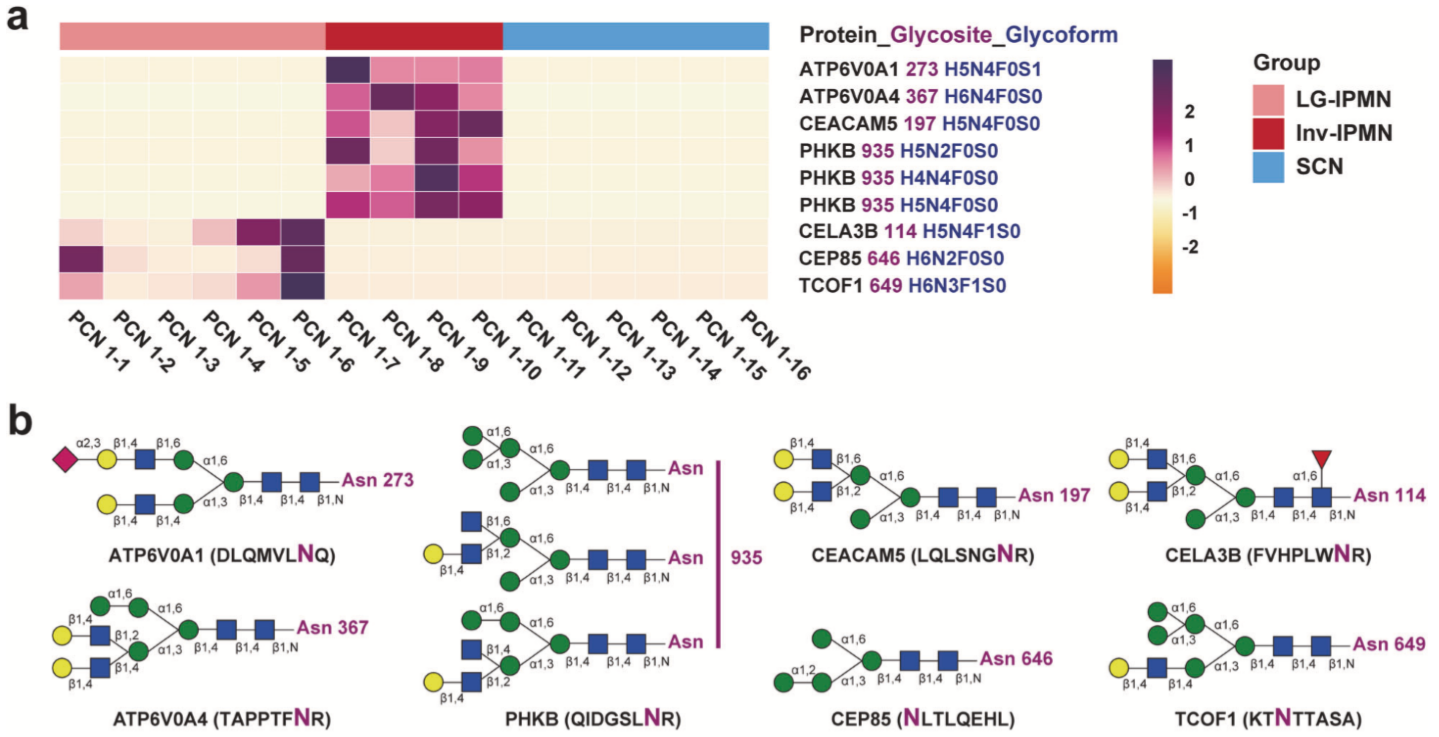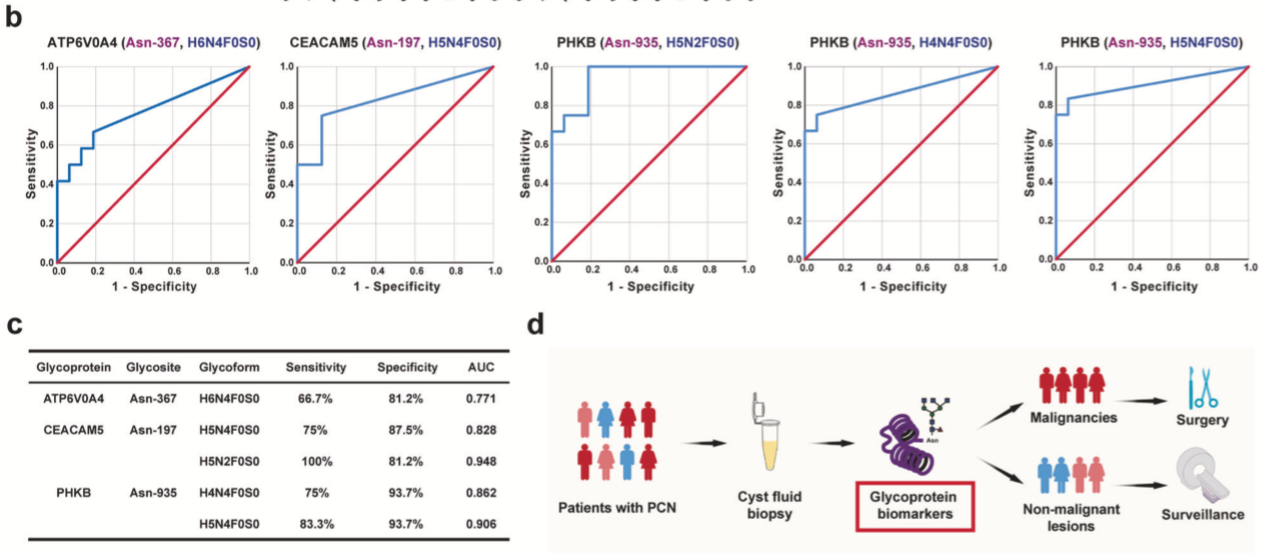Recently, the journal “Signal Transduction and Targeted Therapy” (IF: 39.3) published as original research the latest findings of the pancreatic surgery team from PUMCH. The research team successfully established a mass spectrometry-based cyst fluid glycoproteomic analysis technique, and identified a group of cyst fluid glycoprotein biomarkers that accurately distinguish malignancies of pancreatic cystic neoplasm.
The detection of pancreatic cystic neoplasms (PCNs) has markedly increased due to more frequent applications of cross-sectional imaging. PCNs encompass various types, notably intraductal papillary mucinous neoplasm, mucinous cystic neoplasm, serous cystic neoplasm, solid pseudopapillary tumor, and cystic neuroendocrine tumor. A small portion of PCNs can undergo malignant transformation, thus early detection of malignant PCNs is crucial for improving patient outcomes. Cyst fluid analysis stands as a pivotal diagnostic tool for PCNs, but the availability of reliable cyst fluid biomarkers is currently extremely limited.
Aberrant glycosylation has been added as an important biological characteristic of cancer. The research team has successfully established a novel technique for glycoproteomic analysis of cyst fluid using mass spectrometry-based platforms. Based on this technique, the research team performed high-throughput proteomic and glycoproteomic analysis on cyst fluid specimens with different pathological types, and identified a group of glycoprotein biomarkers that are specifically expressed in malignant PCN cases, including glycosylated PHKB, CEACAM5, and ATP6V0A4.

▲a. Identification of potential glycoprotein biomarkers in the PCN cohort; b. Schematic diagrams illustrating N-glycoform structures of specific glycoproteins
Building upon the distinctive ion features and spectra of the aforementioned glycoproteins, the research team has established a targeted glycoproteomic quantitation method based on parallel reaction monitoring (PRM) detection. Through an expanded cohort of PCN patients, the team has validated that these cyst fluid biomarkers accurately distinguish malignant cases among PCN patients. The potential translation of these novel diagnostic biomarkers into clinical settings holds promise for enhancing the comprehensive diagnosis and treatment of PCNs.

▲b. c. The diagnostic sensitivity of the cyst fluid glycoprotein biomarkers ranges from 66.7% to100%, with specificity ranging between 81.2% and 93.7%. The area under the curve (AUC) falls within the range of 0.771 to 0.906.; d. Clinical significance of this study.
Written by Cui Ming and Gan Dingzhu
Edited by Gan Dingzhu and Chen Xiao
Translated by Liu Haiyan
Reviewed by Hou Rui and Wang Yao
